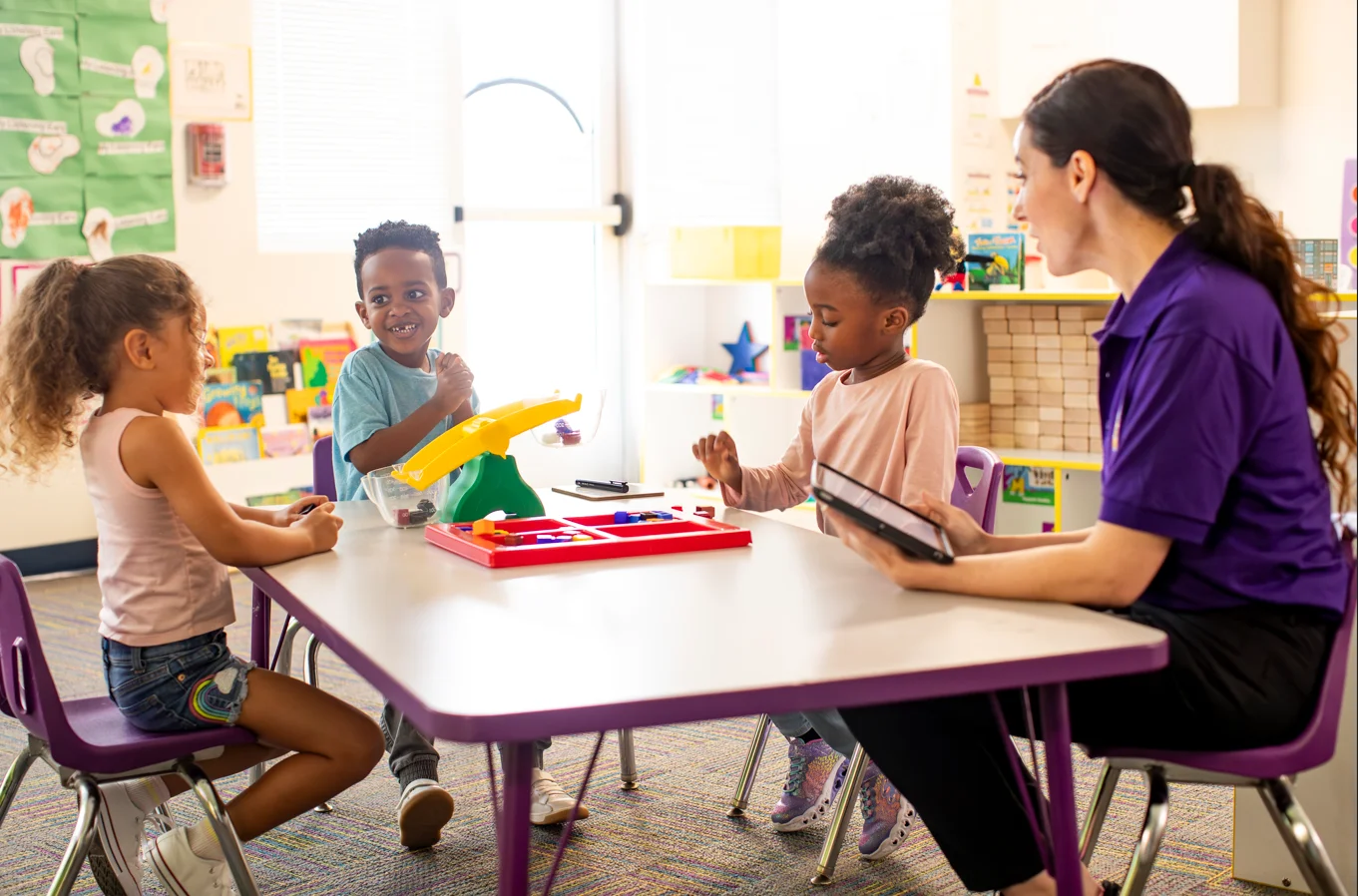Early childhood education is packed with challenges for both parents and teachers. Modern neuroscience and decades of child study demonstrate that young kids learn best when engaging in physical activities. This means they learn best by using their hands, interacting with other youngsters and adults, moving around a bit, creating things, and playing. But that’s not what is taking place in today’s educational environment. Young children are forced to sit in a classroom, at their desks, and complete academic work without any physical activity. This is called “rigorous instruction.”
When looking for the most effective ways to introduce their young children to early education, parents of infants and toddlers frequently come across the term “play-based learning.” But what really are these play-based learning activities ? Why do they matter?
Children learn best through play, to put it simply. They explore, use their creativity, take risks, work as a team, and solve problems when they play. They foster important skills that promote social, emotional, physical, and cognitive growth. Our brains prefer to learn through play!
Here are a few benefits that play based learning activities provide:
- Language development: A child’s reading and language development are aided by play. Their vocabulary expands and develops significantly during the preschool years, and play-based learning promotes discussions to happen naturally. Language and communication are even fostered through personalized play-based learning activities. A child will frequently act out different sides of a discussion while playing or describing the toys they are using.
Children communicate in a variety of ways when playing with one another, including through discussing goals, negotiating, and telling stories. Children will select who will be the teacher and who will be the student, for instance, when they play “school.” Adults can aid language development through play by promoting dialogue, posing queries, and introducing new words.
- Cognitive Development: Kids have the opportunity to discover and learn about their surroundings in play-based learning settings. As they explore and play, they learn how to solve problems, be critical thinkers, and be creative.
For instance, you might provide blocks to kids so they can build towers. As kids figure out how to fit them together, they can explore various sizes and shapes during this game. Along with having fun, they pick up a range of other ideas, like gravity and balance.
- Social and Emotional Development: A child’s ability to develop social and emotional abilities, such as forming lasting relationships with peers, depends on play-based learning. Kids learn to forge friendships, collaborate, communicate clearly, solve problems, and resolve disagreements while they play with one another. They learn how to wait patiently and share their belongings, which are essential life skills to have later on! Play is beneficial for fostering the growth of emotional abilities. Children learn empathy, how to identify their emotions, and how to control them while they play.
Psychologists advise play as a stress reliever and as a good approach for kids to work with their stressors, a practice sometimes referred to as “play therapy.” A kid might use calm play to relax and process knowledge when a day gets too much.
- Confidence: Confidence is among the most significant advantages of play-based learning. A child that is confident will be more willing to take chances and attempt new things. Children who are given freedom in how they play are better able to understand topics because they are engaged and interested in what they are learning. As students take the initiative, it also promotes independence in their learning.
A child’s ability to learn at his or her pace contributes to developing a good attitude toward learning. Play-based learning allows children to learn without stress because there is no emphasis on the final product; rather, the experience is what matters.




